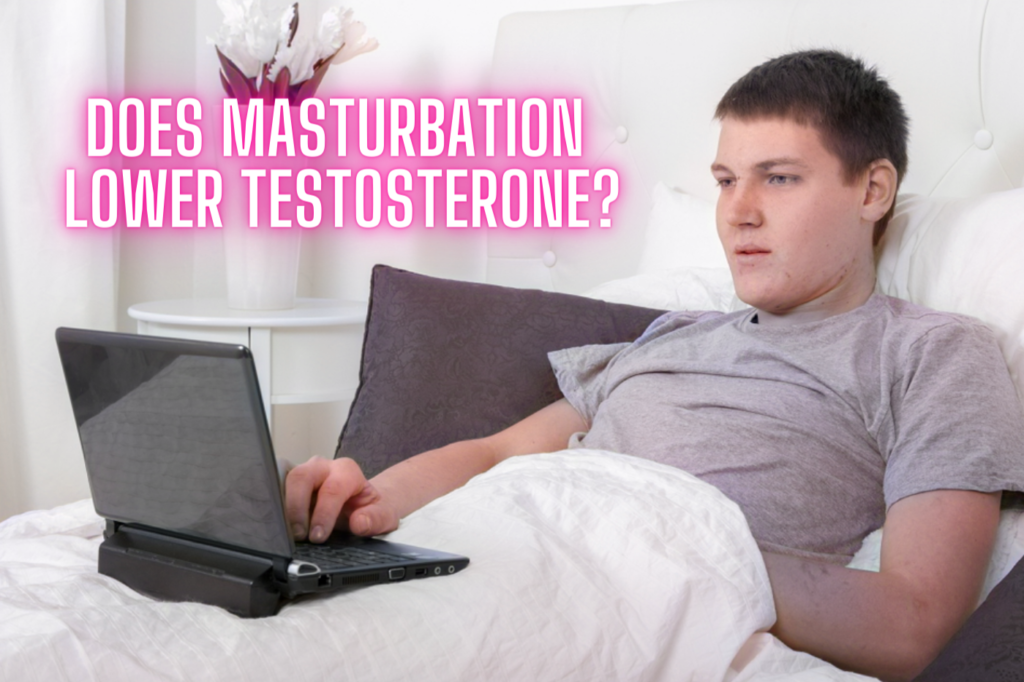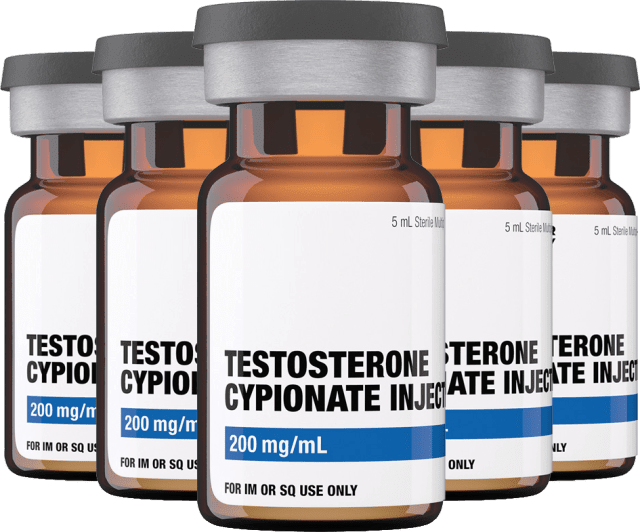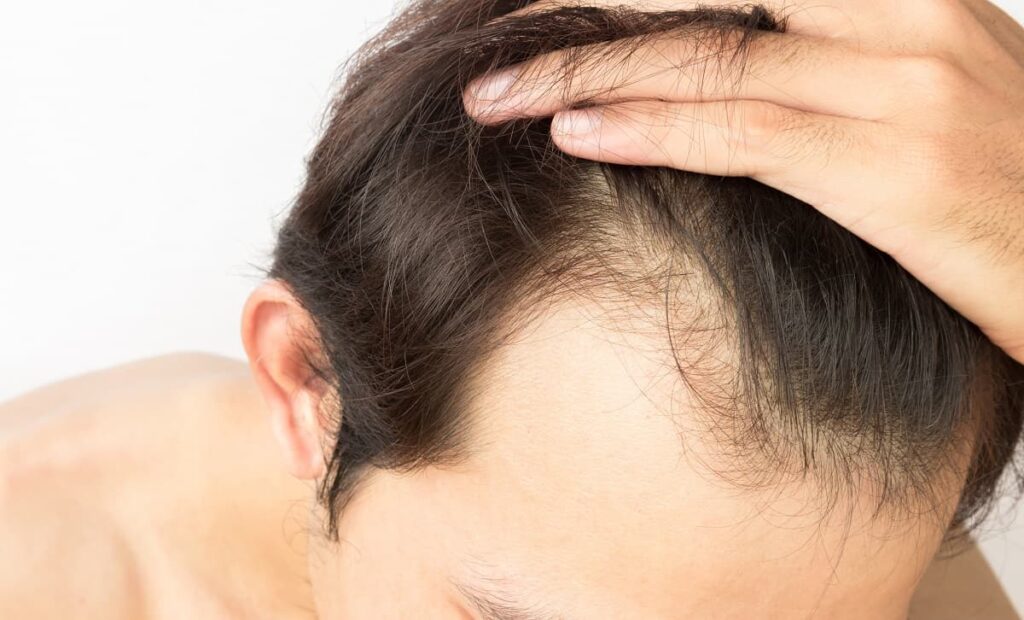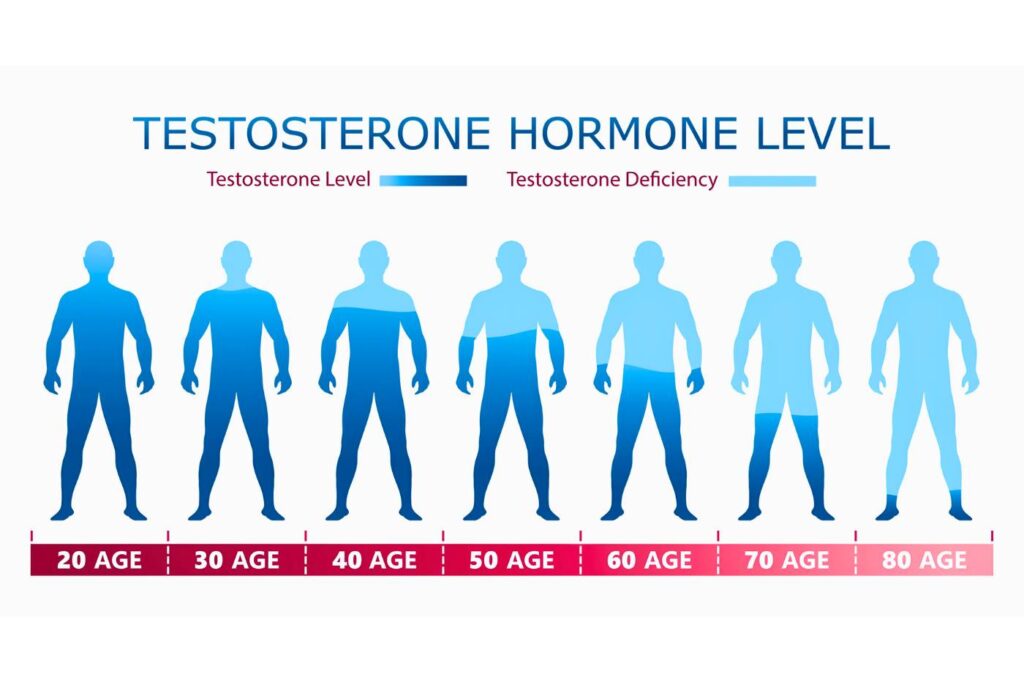Masturbation does not significantly lower testosterone levels. Studies show minimal impact on long-term testosterone production.
Understanding the effects of masturbation on testosterone is essential. Testosterone is a crucial hormone for both men and women, influencing muscle mass, mood, and overall health. Myths often suggest that frequent masturbation can drastically lower testosterone levels. Scientific evidence, however, indicates otherwise.
Short-term fluctuations may occur, but they do not lead to long-term hormonal changes. Maintaining a healthy lifestyle, including regular exercise and a balanced diet, is more influential on testosterone levels. It’s important to rely on factual information rather than myths. Knowing the truth helps in making informed health decisions.
Introduction To Testosterone And Masturbation
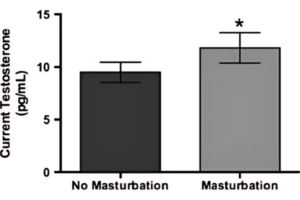
Many people wonder if masturbation affects testosterone levels. Understanding the role of testosterone and common myths about masturbation can help clarify this.
The Role Of Testosterone In The Body
Testosterone is a key hormone in the body. It affects many functions.
- Muscle growth: Helps build and maintain muscle mass.
- Bone density: Keeps bones strong and healthy.
- Mood regulation: Influences mood and energy levels.
- Sex drive: Boosts libido and sexual function.
Testosterone is crucial for both men and women. It plays a vital role in overall health.
Common Myths About Masturbation Effects
There are many myths about masturbation and testosterone.
Myth 1: Masturbation significantly lowers testosterone levels. Studies show this is not true. Testosterone levels remain stable.
Myth 2: Frequent masturbation harms sexual health. No evidence supports this. Masturbation is a normal activity.
Myth 3: Masturbation causes long-term hormonal issues. There is no scientific proof for this claim.
Understanding the facts can help dispel these myths. It’s important to rely on science, not rumors.
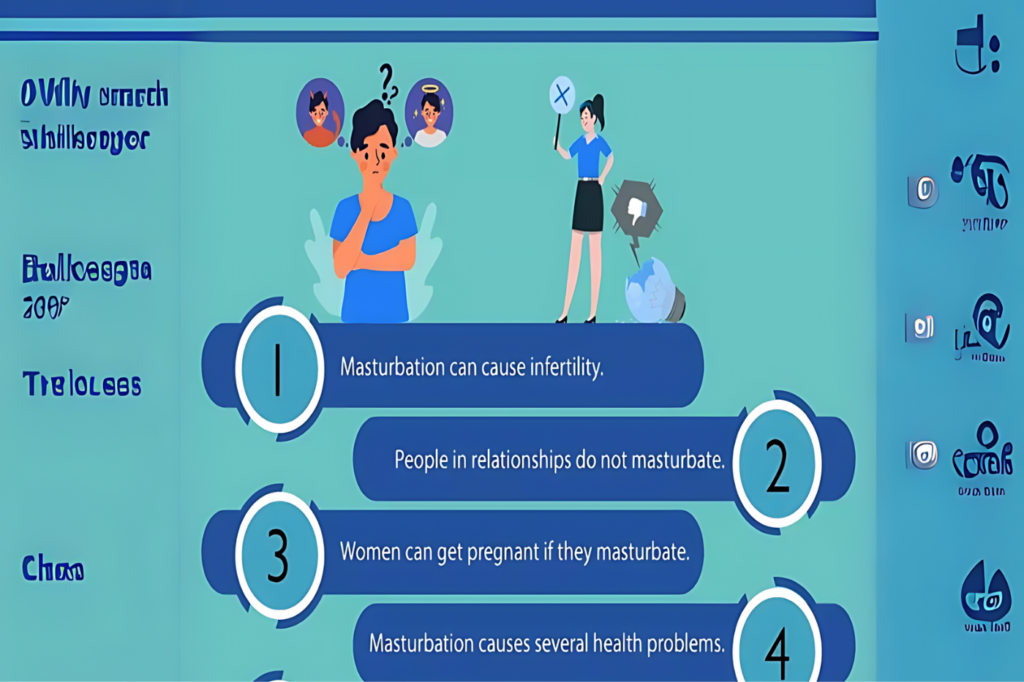
The Science Behind Testosterone Levels
Understanding the science behind testosterone levels helps in addressing common myths. One prevalent question is, does masturbation lower testosterone? Let’s explore the factors influencing testosterone levels.
How Testosterone Is Produced
Testosterone is a crucial hormone in both men and women. It plays a significant role in muscle mass, bone density, and sexual health.
The production of testosterone occurs primarily in the testes for men and the ovaries for women. The adrenal glands also produce small amounts in both sexes.
A process called steroidogenesis converts cholesterol into testosterone. This process involves several steps and enzymes.
The hypothalamus and pituitary gland regulate testosterone production. They release hormones that signal the testes or ovaries to produce testosterone.
Factors Affecting Testosterone Levels
Several factors can influence testosterone levels. These include age, lifestyle, and medical conditions.
- Age: Testosterone levels naturally decline with age. This decline starts around age 30.
- Diet: A balanced diet supports healthy testosterone levels. Nutrient deficiencies can lower testosterone.
- Exercise: Regular physical activity, especially strength training, can boost testosterone levels.
- Stress: High stress levels lead to elevated cortisol, which can lower testosterone.
- Sleep: Quality sleep is essential for maintaining healthy testosterone levels. Poor sleep can reduce testosterone.
- Medical Conditions: Conditions like obesity and diabetes can negatively impact testosterone levels.
Understanding these factors helps in maintaining optimal testosterone levels. It also debunks myths surrounding activities like masturbation.
Masturbation: Myths Vs. Facts

Masturbation is a natural activity. Many myths surround it, especially its effect on testosterone levels. This section will clarify common misconceptions and present the facts.
Origins Of The Masturbation-testosterone Myth
The myth that masturbation lowers testosterone comes from outdated beliefs. Early studies lacked modern research techniques. These studies suggested a negative impact on hormonal levels. This led to widespread misinformation.
Cultural taboos also fueled these myths. Many cultures viewed masturbation as harmful or immoral. This further spread the idea that it affects testosterone negatively.
What Research Says About Masturbation And Hormones
Recent research shows no significant impact on testosterone from masturbation. Studies indicate that testosterone levels remain stable after masturbation. Researchers have used advanced techniques to measure hormone levels accurately.
Some studies even suggest that masturbation might have temporary effects. These effects are minor and short-lived. Overall, masturbation does not harm hormone balance.
| Myth | Fact |
|---|---|
| Masturbation lowers testosterone permanently | Testosterone levels remain stable |
| Masturbation causes hormonal imbalances | No long-term hormonal changes |
Understanding the difference between myths and facts is crucial. It helps in making informed decisions about your health.
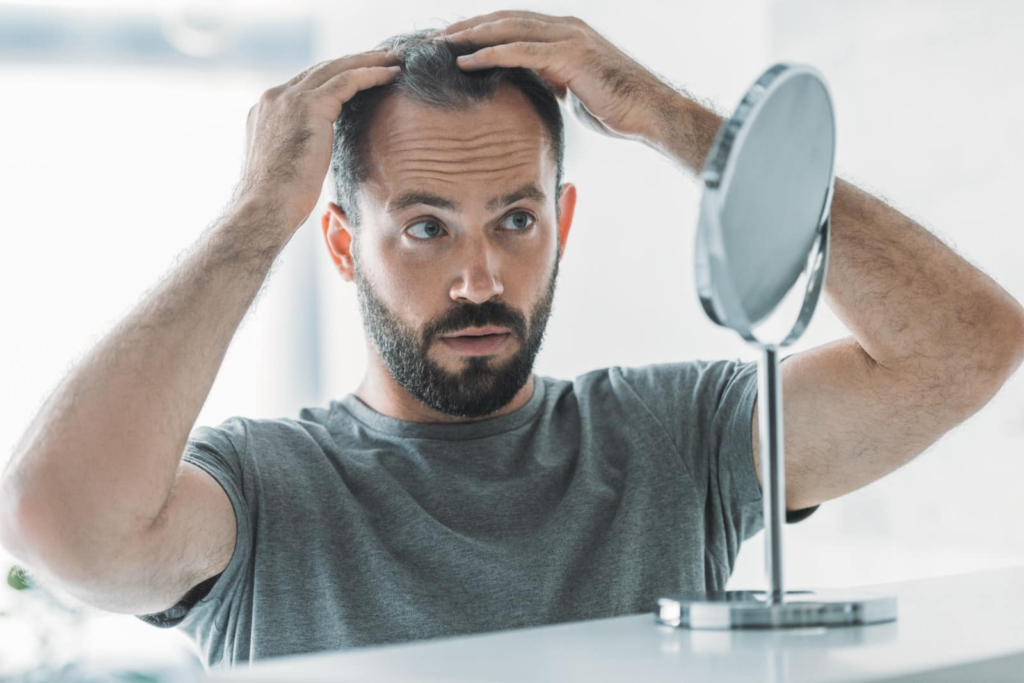
Understanding Short-term Effects On Testosterone
Masturbation is a natural activity. Many people wonder if it affects testosterone. Understanding short-term effects on testosterone can help clear doubts.
Immediate Hormonal Changes Post-masturbation
After masturbation, the body undergoes hormonal changes. Testosterone levels may show slight fluctuations. These changes are usually temporary.
Immediately after orgasm, the hormone prolactin increases. Prolactin can reduce sexual desire. It may also slightly lower testosterone for a short time.
Studies show that testosterone levels return to normal quickly. No long-term hormonal imbalance is noted. The body’s hormone regulation system works efficiently.
The Refractory Period And Hormone Levels
The refractory period follows an orgasm. During this time, the body recovers. Hormone levels, including testosterone, stabilize.
The length of the refractory period varies. Some factors influencing it include age and overall health. During this period, sexual arousal is harder to achieve.
Testosterone levels are not significantly affected during the refractory period. The body ensures hormone levels remain balanced. Regular masturbation does not cause harmful hormonal changes.
Understanding these effects helps in maintaining a healthy perspective. Masturbation is a normal part of sexual health. It does not lead to long-term testosterone reduction.
Long-term Masturbation Effects On Hormones
Understanding the relationship between lifestyle, diet, and testosterone maintenance is crucial. Many factors can influence testosterone levels. Proper lifestyle choices and the right diet can help maintain healthy testosterone levels.
Testosterone-boosting Foods And Activities
Eating the right foods can boost testosterone levels. Here are some testosterone-boosting foods:
- Eggs: They are rich in protein and healthy fats.
- Spinach: Contains magnesium, which boosts testosterone.
- Oysters: High in zinc, crucial for testosterone production.
- Salmon: Packed with Vitamin D and Omega-3 fatty acids.
- Garlic: Contains allicin, which reduces cortisol levels.
Engaging in certain activities can also help. Here are some testosterone-boosting activities:
- Weight lifting: Increases muscle mass and testosterone.
- High-intensity interval training (HIIT): Improves hormone health.
- Getting enough sleep: Lack of sleep lowers testosterone.
- Stress management: Stress increases cortisol which affects testosterone.
Habits That Could Be Lowering Your Testosterone
Some habits can negatively impact testosterone levels. Here are some habits to avoid:
- Poor diet: High sugar and processed foods reduce testosterone.
- Lack of exercise: Leads to weight gain and lower testosterone.
- Excessive alcohol consumption: Reduces testosterone production.
- Smoking: Damages blood vessels and impacts hormone levels.
- Chronic stress: Increases cortisol, which lowers testosterone.
| Foods | Benefits |
|---|---|
| Eggs | Rich in protein and healthy fats |
| Spinach | Contains magnesium |
| Oysters | High in zinc |
| Salmon | Vitamin D and Omega-3 fatty acids |
| Garlic | Reduces cortisol levels |
Psychological Effects And Testosterone
Many people believe that masturbation lowers testosterone. This myth has spread widely. But what do experts say? Let’s explore their opinions.
Medical Professionals Weigh In
Doctors say masturbation does not lower testosterone. They believe it has little effect on hormone levels. Studies show testosterone levels stay stable after masturbation.
Some doctors even say masturbation has health benefits. It can reduce stress and improve mood. It also promotes good sleep.
Urology And Endocrinology Insights On Masturbation
Urologists study male reproductive health. They say masturbation is normal and safe. It does not harm testosterone levels.
Endocrinologists study hormones. They agree with urologists. They find no link between masturbation and low testosterone.
Lifestyle, Diet, And Their Role In Testosterone Maintenance
The debate about masturbation and testosterone levels is common. Many men worry about its effects on their hormone balance. Scientific research provides some clarity on this topic. Let’s dive into the findings.
Summarizing The Scientific Consensus
Various studies explore the link between masturbation and testosterone. The general consensus is quite clear. Masturbation does not significantly impact testosterone levels.

Researchers have found minor fluctuations in hormone levels after ejaculation. These changes are temporary and return to normal quickly. No long-term effects on testosterone have been observed.
Here are some key points from the studies:
- Short-term testosterone spikes may occur after ejaculation.
- These spikes are brief and not harmful.
- Long-term testosterone levels remain stable.
Final Thoughts And Recommendations For Men’s Health
Maintaining a healthy lifestyle is crucial for overall well-being. Regular exercise, balanced diet, and good sleep positively influence hormone levels.
Masturbation is a natural activity. It does not have negative long-term effects on testosterone. Men can engage in it without worrying about their hormone balance.
Here are some tips for men’s health:
- Exercise regularly to boost overall health.
- Eat a balanced diet rich in vitamins and minerals.
- Ensure adequate sleep to maintain hormone balance.
- Manage stress through relaxation techniques.
Understanding these factors can help men make informed choices. Prioritizing health will lead to a better quality of life.
Frequently Asked Questions
Does Ejaculating A Lot Lower Testosterone?
Ejaculating frequently does not significantly lower testosterone levels. Normal sexual activity won’t cause a drastic hormonal change.
Does Not Ejaculating For 7 Days Increase Testosterone?
Not ejaculating for 7 days may cause a temporary spike in testosterone. However, long-term effects are minimal.
What Lowers Testosterone The Most?
Chronic stress lowers testosterone the most. Poor diet, lack of exercise, and insufficient sleep also contribute to decreased levels.
Is Edging Good For Testosterone?
Edging can temporarily boost testosterone levels. This practice delays ejaculation, potentially increasing hormone production. However, long-term effects are not well-studied. Consult a healthcare professional for personalized advice.
Does Masturbation Affect Testosterone Levels?
Masturbation does not significantly affect testosterone levels in the long term.
Can Frequent Masturbation Lower Testosterone?
Frequent masturbation does not cause a significant drop in testosterone levels.
Does Masturbation Impact Muscle Growth?
Masturbation does not have a noticeable impact on muscle growth.
Is There A Link Between Masturbation And Testosterone?
Masturbation has minimal impact on testosterone levels.
Can Masturbation Reduce Testosterone Production?
Masturbation does not significantly reduce testosterone production.
Does Abstinence Increase Testosterone Levels?
Abstinence can cause a temporary rise in testosterone, but it’s not long-lasting.
Conclusion
Understanding the relationship between masturbation and testosterone is crucial. Current research shows no significant impact on testosterone levels. Maintaining a balanced lifestyle is essential for overall health. Always consult a healthcare professional for personalized advice. This helps ensure you make informed decisions regarding your health and well-being.

